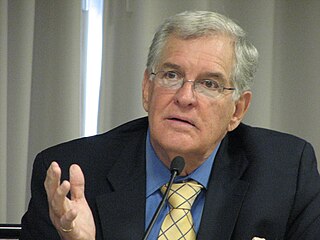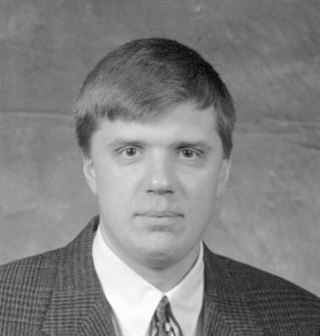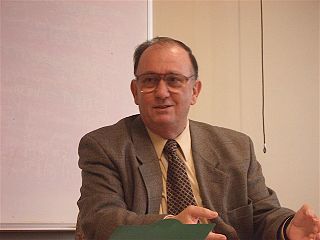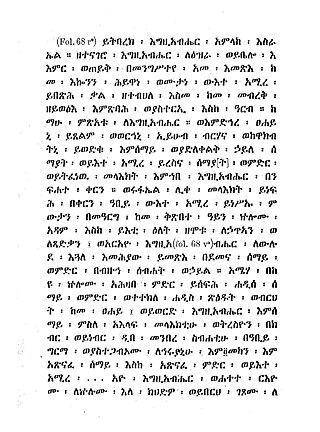Professional Activities
Stuckenbruck has sat on numerous editorial boards for international academic journals, including Zeitschrift für die Neutestamentliche Wissenschaft , Journal for the Study of the Pseudepigrapha , Journal of Biblical Literature , New Testament Studies , Henoch , Zeitschrift für die Althebraistik , Dead Sea Discoveries , and Journal for the Study of Judaism. He has also served as editor for a number of different book series, e.g., Themes in Biblical Narrative (Leiden, Brill), Commentaries on Early Jewish Literature (Berlin, Walter De Gruyter), Library of Second Temple Studies (London, Continuum), European Studies on Christian Origins (London, Continuum), and Commentaries on the Dead Sea Scrolls (Oxford, University Press).
Through his scholarly research, Stuckenbruck has pursued interdisciplinary and collaborative work with scholars from the Middle East (Israel, Egypt), Ethiopia, Germany, Denmark, Norway, Netherlands, France, Switzerland, Austria, Canada, Italy, and the United Kingdom.
Areas of Expertise
Published in four single-authored books, over 20 co-authored or edited books, and some 200 articles, Stuckenbruck's research focuses on Second Temple Judaism and Early Christianity. These publications reflect historical, theological, and interdisciplinary interests. In particular, his work centers on the Dead Sea Scrolls, Enoch literature, other Jewish sapiential and apocalyptic writings, and the literature of the New Testament. Themes most commonly addressed in his publications include theological anthropology, the problem of evil, demonology, mental and physical well-being, angelology, eschatology, biblical cosmology, monotheistic belief, origins of Christology, and text-critical editions (esp. Aramaic, Syriac, Hebrew, Greek, Latin, Ethiopic). His writing focuses on evil in the New Testament (the Gospels, Paul, and the Book of Revelation), the Aramaic documents of the Dead Sea Scrolls, a commentary on the Enochic Book of Watchers (Anchor Bible, Yale University Press), canon in the context of Judaism and a broad range of Christian traditions, and on text-critical work on the early Enoch literature preserved primarily in Aramaic, Greek and Ethiopic (Ge'ez).
The oldest surviving Hebrew Bible manuscripts, the Dead Sea Scrolls, date to c. the 2nd century BC. Some of these scrolls are presently stored at the Shrine of the Book in Jerusalem. The oldest text of the entire Bible, including the New Testament, is the Codex Sinaiticus dating from the 4th century AD, with its Old Testament a copy of a Greek translation known as the Septuagint. The oldest extant manuscripts of the vocalized Masoretic Text date to the 9th century BC. With the exception of a few biblical sections in the Nevi'im, virtually no biblical text is contemporaneous with the events it describes.

The Book of Enoch is an ancient Hebrew apocalyptic religious text, ascribed by tradition to the patriarch Enoch who was the father of Methuselah and the great-grandfather of Noah. The Book of Enoch contains unique material on the origins of demons and Nephilim, why some angels fell from heaven, an explanation of why the Genesis flood was morally necessary, and a prophetic exposition of the thousand-year reign of the Messiah. Three books are traditionally attributed to Enoch, including the distinct works 2 Enoch and 3 Enoch. None of the three books are considered to be canonical scripture by the majority of Jewish or Christian church bodies.

The Book of Giants is an apocryphal book which expands upon the Genesis narrative of the Hebrew Bible, in a similar manner to the Book of Enoch. Together with this latter work, the Book of Giants "stands as an attempt to explain how it was that wickedness had become so widespread and muscular before the flood; in so doing, it also supplies the reason why God was more than justified in sending that flood." The text's composition has been dated to before the 2nd century BC.

Richard John Bauckham is an English Anglican scholar in theology, historical theology and New Testament studies, specialising in New Testament Christology and the Gospel of John. He is a senior scholar at Ridley Hall, Cambridge.

James Hamilton Charlesworth is an American academic who served as the George L. Collord Professor of New Testament Language and Literature until January 17, 2019, and Director of the Dead Sea Scrolls Project at the Princeton Theological Seminary. His research interests include the Apocrypha and Pseudepigrapha of the Hebrew and Christian Bibles, the Dead Sea Scrolls, Josephus, the Historical Jesus, the Gospel of John, and the Book of Revelation.
Daniel 7 tells of Daniel's vision of four world-kingdoms replaced by the kingdom of the saints or "holy ones" of the Most High, which will endure for ever. Four beasts come out of the sea, the Ancient of Days sits in judgment over them, and "one like a son of man" is given eternal kingship. An angelic guide interprets the beasts as kingdoms and kings, the last of whom will make war on the "holy ones" of God, but they will be destroyed and the "holy ones" will be given eternal dominion and power.
The Enoch Seminar is an academic group of international specialists in Second Temple Judaism and the origins of Christianity who share information about their work in the field and biennially meet to discuss topics of common interest. The group is supported by the Department of Near Eastern Studies of the University of Michigan and the Michigan Center for Early Christian Studies, the group gathers about 200 university professors from more than fifteen countries.

The origins of Judaism lie in Bronze Age polytheistic Canaanite religion. Judaism also syncretized elements of other Semitic religions such as Babylonian religion, which is reflected in the early prophetic books of the Hebrew Bible.
Simon James Gathercole is a United Kingdom New Testament scholar, Professor of New Testament and Early Christianity, and Director of Studies at Fitzwilliam College, Cambridge.

Andrei A. Orlov is an American professor of Judaism and Christianity in Antiquity at Marquette University. He "is a specialist in Jewish Apocalypticism and Mysticism, Second Temple Judaism, and Old Testament Pseudepigrapha. Within the field of Second Temple Jewish apocalyptic literature, Orlov is considered among the leading experts in the field of Slavonic texts related to Jewish mysticism and Enochic traditions." He "has established himself as a significant voice in the study of Second Temple Jewish traditions, especially those associated with 2 Enoch and other Slavonic Pseudepigrapha." Orlov is a veteran of the Enoch seminar and a member of the Advisory Board of the journal Henoch.

Michael Edward Stone is a professor emeritus of Armenian Studies and of Comparative Religion at the Hebrew University of Jerusalem. His research deals with Armenian studies and with Jewish literature and thought of the Second Temple period. He is also a published poet.
Adela Yarbro Collins is an American author and academic, who has served as the Buckingham Professor of New Testament Criticism and Interpretation at Yale Divinity School. Her research focuses on the New Testament, especially the Gospel of Mark and the Book of Revelation, and she has also written on early Christian apocalypticism and eschatology. Collins has also served as the President of the Society of New Testament Studies (2010–2011) and as the President of the New England Region of the Society of Biblical Literature (2004–2005).
Markus Bockmuehl is a biblical scholar specialising in Early Christianity. He has been the Dean Ireland's Professor of the Exegesis of Holy Scripture at the University of Oxford since 2014, and a Fellow of Keble College, Oxford, since 2007.
Marvin Alan Sweeney is Professor of Hebrew Bible at Claremont School of Theology (1994–present). Dr. Sweeney was trained under the tutelage of Rolf P. Knierim at Claremont Graduate University. He was a Yad ha-Nadiv/Barecha Foundation Post-Doctoral Fellow in Jewish Studies at the Hebrew University of Jerusalem, where he worked with Moshe Greenberg (1989-1990); a Lilly Theological Research Grant Recipient (1997-1998); and a Fellow of the Summer Institute for Modern Israel Studies, sponsored by the American Jewish Committee and Brandeis University (2004). Sweeney previously taught in the Religious Studies Department and Judaic Studies Program at the University of Miami in Coral Gables, FL (1983-1994), and he has served as Dorot Research Professor at the W. F. Albright Institute in Jerusalem, Israel (1993-1994); Visiting Professor of Bible at the Hebrew Union College—Jewish Institute of Religion, Los Angeles, CA ; Underwood Professor of Divinity at Yonsei University in Seoul, Korea (2011); visiting scholar at Chang Jung Christian University in Tainan, Taiwan (2015); and Professor of Tanak at the Academy for Jewish Religion California, Los Angeles, CA (2000-2019). He also serves on the faculty of Religion at Claremont Graduate University (1994–present). In 2019, Sweeney relocated to Salem, Oregon, due to the attempted transfer of Claremont School of Theology to Willamette University.

Hermann Spieckermann is a German biblical scholar, historian of ancient Near Eastern religion, and Protestant theologian. He currently holds a chair for Old Testament, or Hebrew Bible, in the Faculty of Theology at the University of Göttingen, in Germany. Through extensive authorial, editorial, and organizational undertakings, Spieckermann has exerted considerable influence on Hebrew Bible research.
Carol Ann Newsom is an American biblical scholar, historian of ancient Judaism, and literary critic. She is the Charles Howard Candler Professor Emerita of Old Testament at the Candler School of Theology and a former senior fellow at the Center for the Study of Law and Religion at Emory University. She is a leading expert on the Dead Sea Scrolls, Wisdom literature, and the Book of Daniel.
Matthias Henze is the Isla Carroll and Perry E. Turner Professor of Hebrew Bible and Early Judaism at Rice University in Houston, Texas.
Reimund Bieringer is a German theologian, biblical scholar, Professor Emeritus of New Testament Exegesis at the Faculty of Theology and Religious Studies, KU Leuven, Belgium, and a Roman Catholic priest of the Diocese of Speyer in Germany. The main areas of his research include the Second Letter to the Corinthians, the Gospel of John, and biblical hermeneutics.

The Ethiopic Apocalypse of Ezra, also called the Falasha Apocalypse of Ezra, is an apocalypse written in Geʿez (Ethiopic) that circulated among the Beta Israel (Falasha) and foretold the divine destruction of Islam.
B. J. Oropeza is an American biblical scholar and theologian who is best known for his studies in Pauline literature, intertextuality, apostasy and perseverance, and theology on superheroes. He earned his Ph.D. in New Testament Theology at Durham University (England) under the supervision of Drs. James D. G. Dunn and Loren T. Stuckenbruck. He is Professor of Biblical and Religious Studies at Azusa Pacific University and Seminary in Azusa, California.








